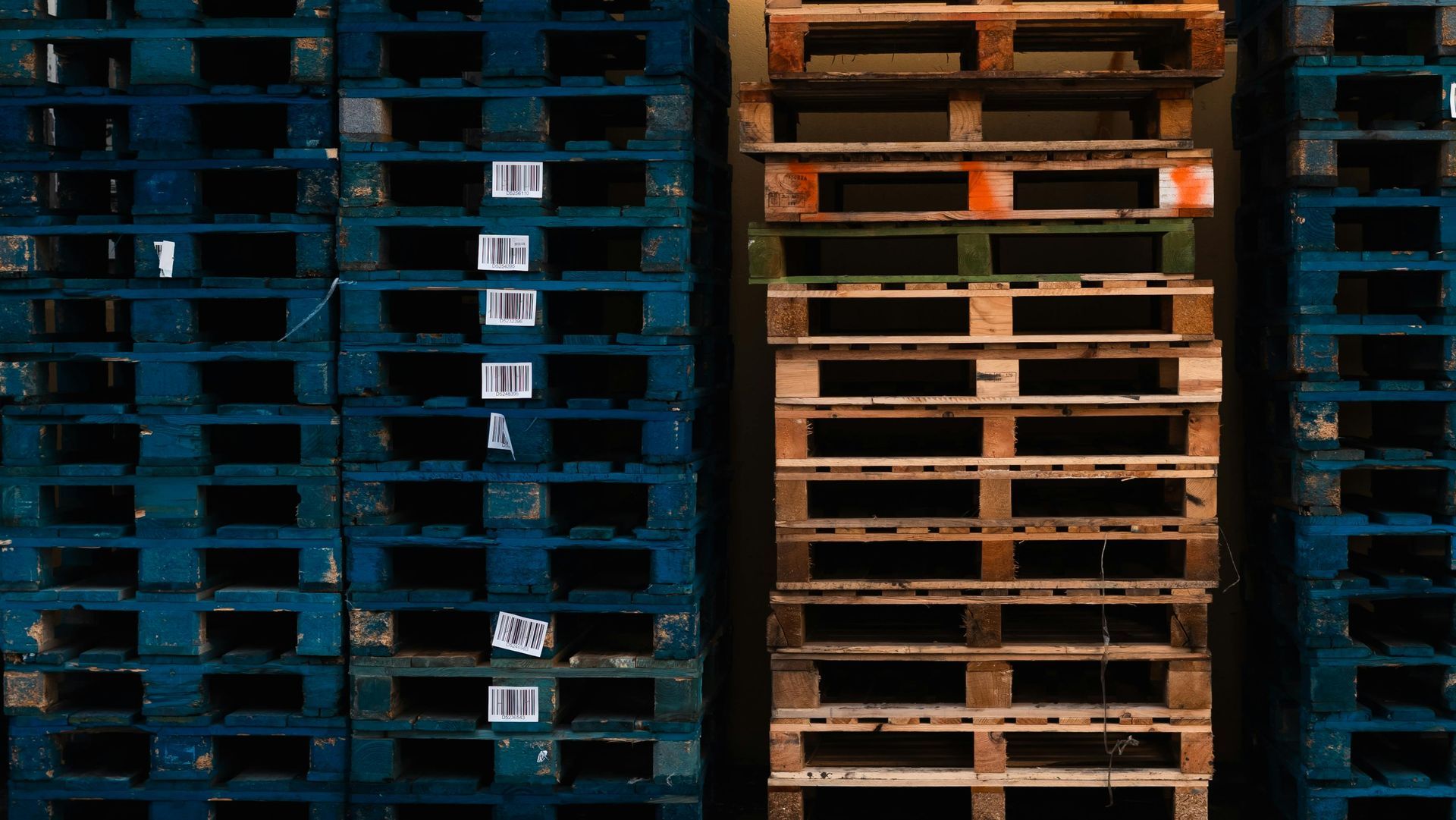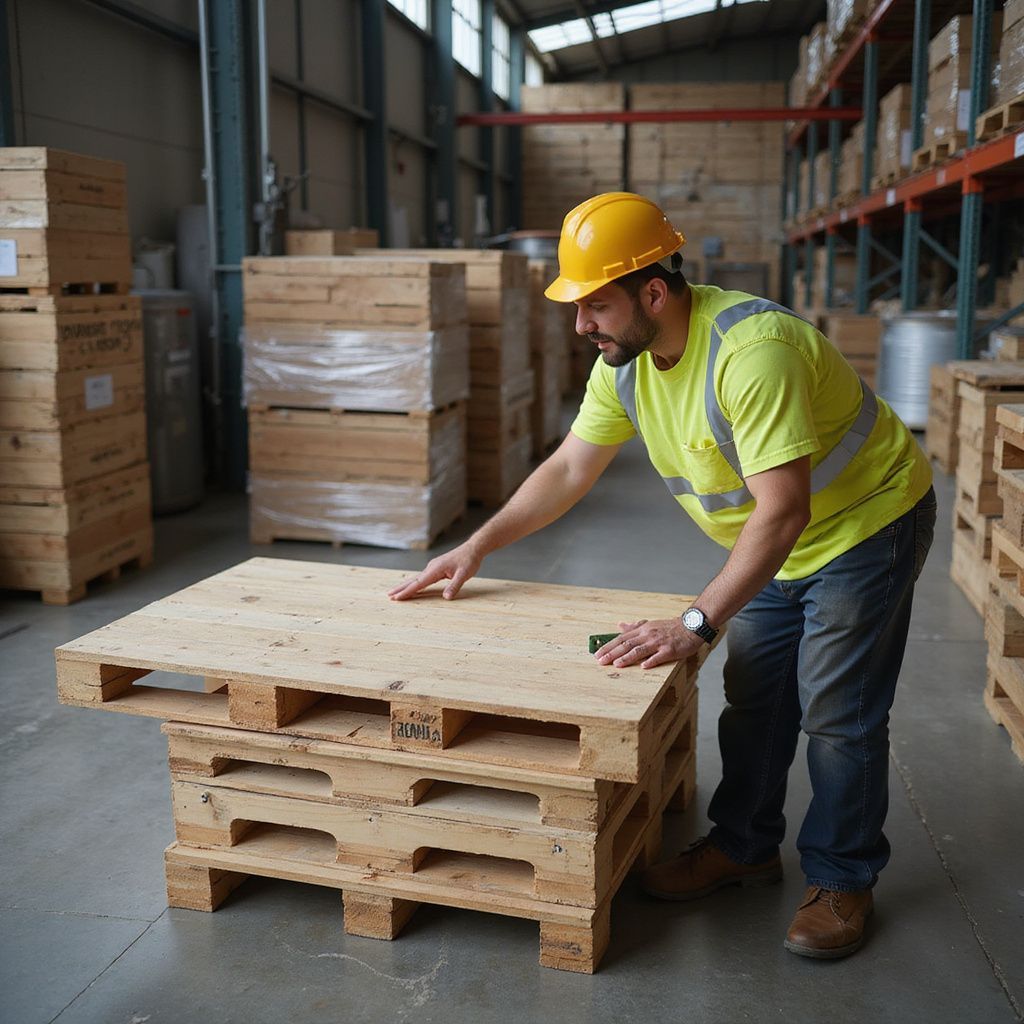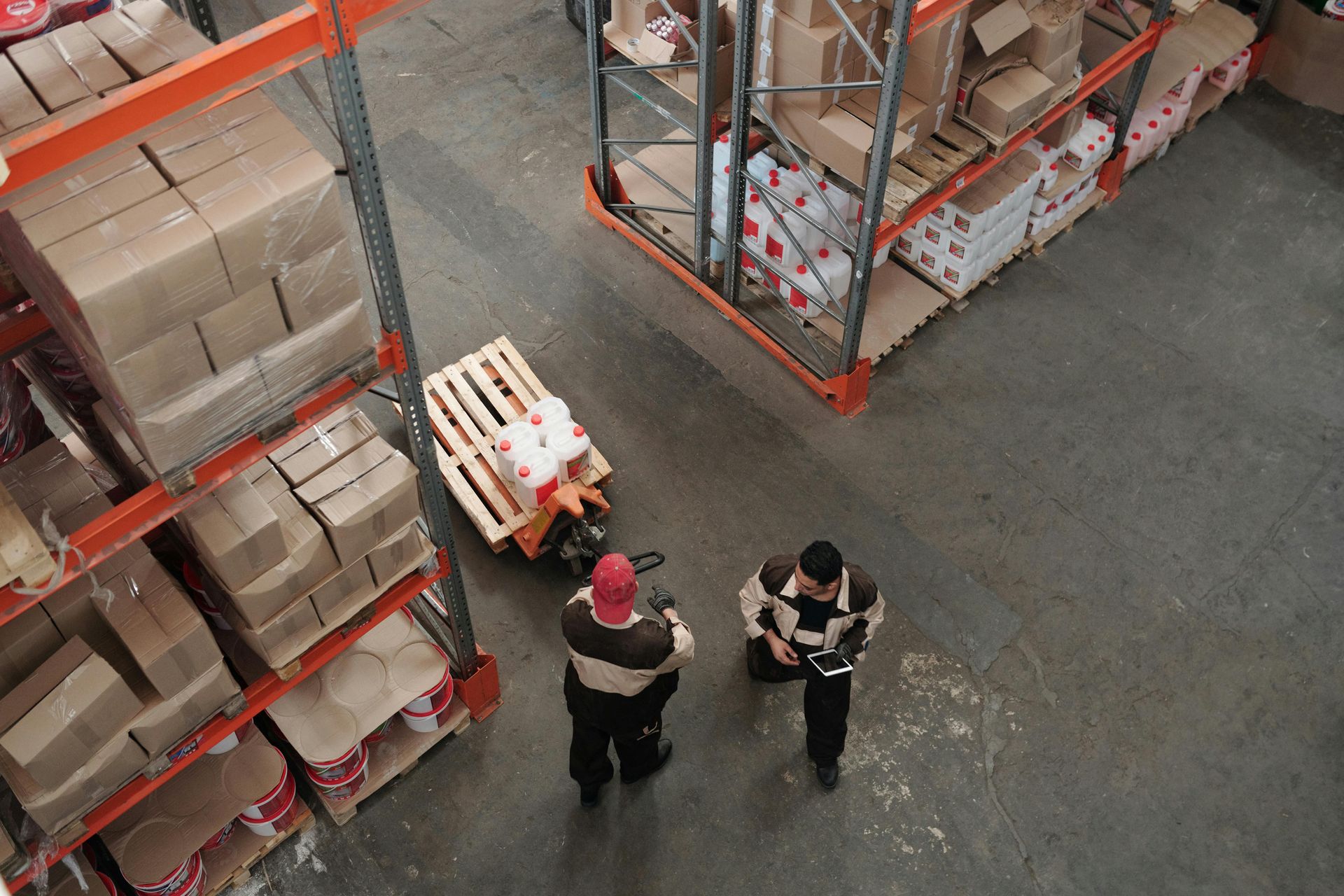Your Guide to Zero-Waste Logistics Using Recycled Pallets
As supply chains grow more complex and sustainability becomes a core business priority, many companies are re-evaluating the materials and systems they rely on every day.
One area that offers immediate potential for environmental improvement — often overlooked — is the use of wood pallets.
Wood pallets are essential to modern logistics, serving as the foundation for transporting goods across warehouses, distribution centers, and retail stores. But their role extends beyond basic functionality.
When properly reused and recycled, pallets can support a broader zero-waste logistics strategy, minimizing environmental impact and reducing material waste at scale.
This guide outlines what zero-waste logistics means, how recycled pallets fit into that framework, and practical steps businesses can take to align pallet usage with their sustainability goals.
What Is Zero-Waste Logistics?
Zero-waste logistics refers to a supply chain model in which every material used is repurposed, recycled, or reused rather than discarded. The aim is to design logistics processes that eliminate landfill waste while maximizing resource efficiency.
In practice, this can involve several methods.
- Selecting reusable packaging and materials,
- Designing return or recovery systems,
- Working with vendors who support circular processes, and
- Tracking material flow to ensure nothing becomes waste.
For companies handling large volumes of shipments, even small changes in pallet use and recovery can lead to meaningful improvements in overall waste reduction.
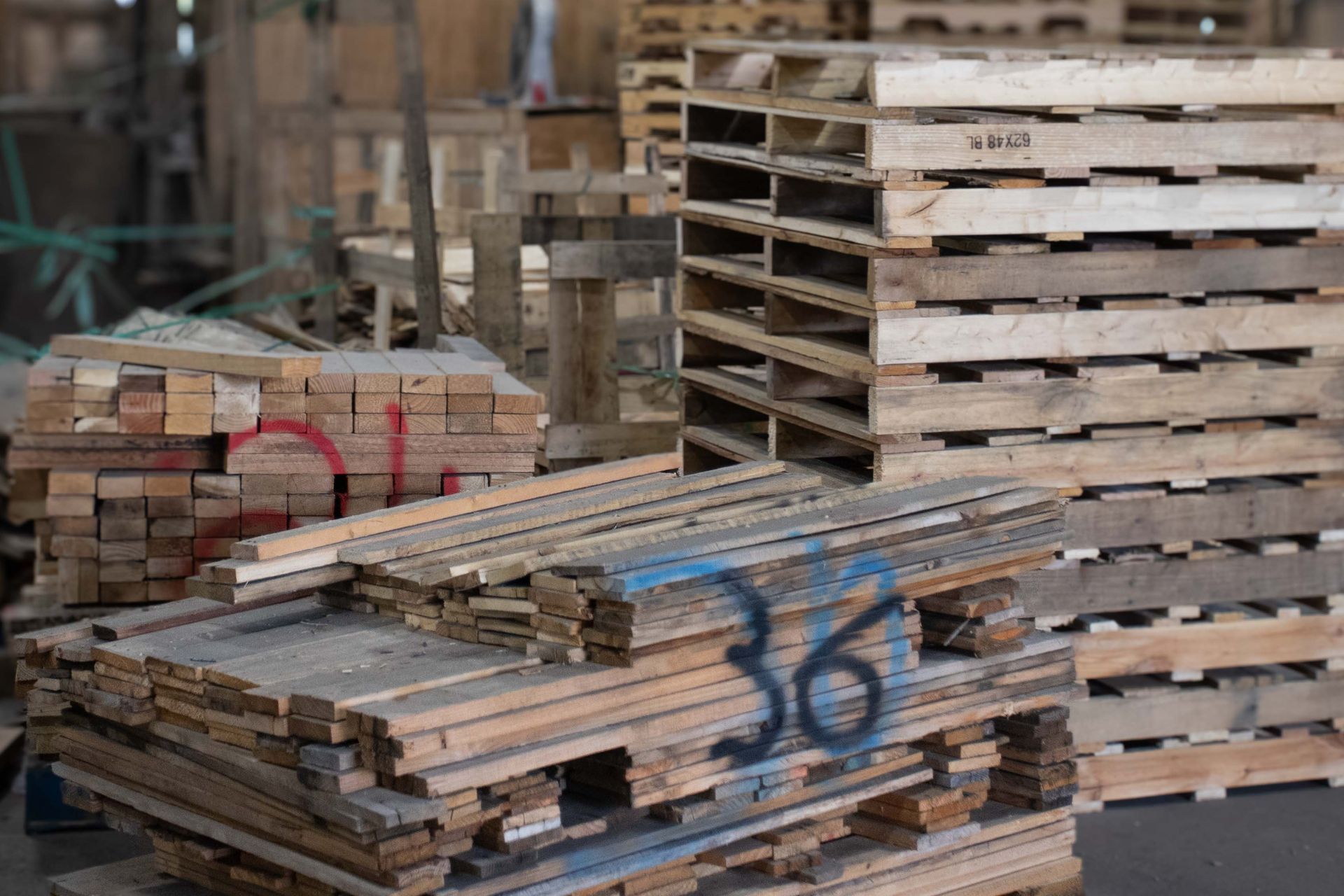
The Role of Recycled Pallets in a Circular System
Pallets are ideal candidates for circular logistics models. Wood is naturally renewable, and pallets themselves are highly reusable. A recycled pallet has already been used at least once, then recovered, repaired if needed, and returned to service.
By using recycled pallets instead of new ones, businesses can enjoy numerous benefits.
- Extend the life cycle of raw materials.
- Reduce demand for virgin lumber.
- Lower carbon emissions associated with manufacturing.
- Prevent solid waste created by used pallets
This reuse process also reduces the need for constant manufacturing, minimizing the energy, water, and emissions typically required to produce new pallets.
How Recycled Pallets Are Managed
The recycling and reconditioning of pallets typically follows a circular process involving several key steps:
- Collection—Pallets are collected from warehouses, stores, or customer locations. They are usually returned through a reverse logistics system or picked up by a pallet recovery provider.
- Sorting and Inspection – Returned pallets are sorted by size, condition, and type. Each pallet is examined for damage, missing boards, or weak joints.
- Repair and Refurbishment – Repairable pallets are fixed using reclaimed wood and fasteners. If a pallet cannot be repaired, its usable components may be salvaged.
- Reuse or Repurpose – Fixed pallets are returned to circulation. Severely damaged pallets may be ground down for mulch, pressed wood products, animal bedding, or biomass fuel.
This process minimizes waste and allows each pallet to fulfill multiple roles over its lifespan. Pallets sometimes circulate through the supply chain dozens of times before being fully decommissioned.
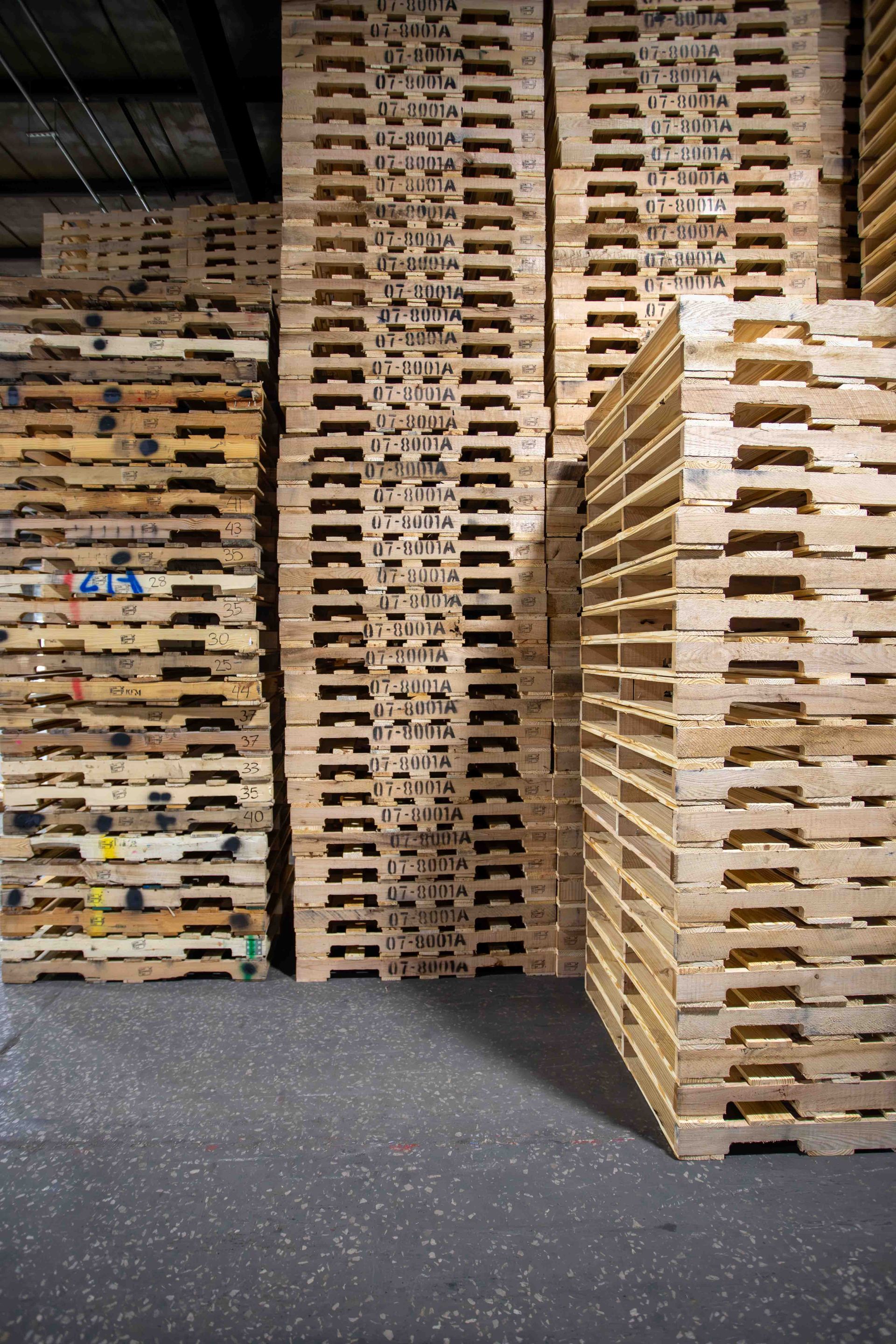
Environmental and Economic Benefits
The use of recycled pallets contributes to both sustainability and operational efficiency.
- Reduced Timber Use – Recycled pallets reduce the need for fresh lumber, which lowers pressure on forests and slows deforestation.
- Lower Greenhouse Gas Emissions – Recycling wood consumes less energy than manufacturing new pallets from scratch, reducing CO₂ output.
- Cost Efficiency – Recycled pallets are typically
20–40% less expensive than new ones, making them an economical choice for companies looking to reduce spending.
- Landfill Diversion – Used pallets are a significant source of industrial wood waste. Recycling and reusing them helps divert thousands of tons of wood from landfills annually.
Implementing a Zero-Waste Pallet Strategy
Adopting a zero-waste approach to pallet use doesn't require a complete overhaul of operations. The transition can happen gradually by following a few practical steps.
Assess Your Current Pallet Use
Start by tracking how many pallets your business receives, uses, and disposes of in a typical month. Identify how many are being discarded and where recovery opportunities exist.
Work With a Pallet Recovery or Recycling Partner
Collaborate with a service provider that offers pallet pickup, repair, and return services. They can help design a looped system that keeps pallets in circulation and out of landfills.
Train Warehouse and Logistics Teams
Ensure your staff understands how to handle, store, and sort used pallets properly. Provide guidelines for identifying repairable pallets vs. damaged ones that need recycling.
Integrate Reporting and Metrics
Track your progress. Monitor the number of pallets reused, repaired, or recycled over time. Include this data in your company's sustainability reporting to measure improvements and set future goals.
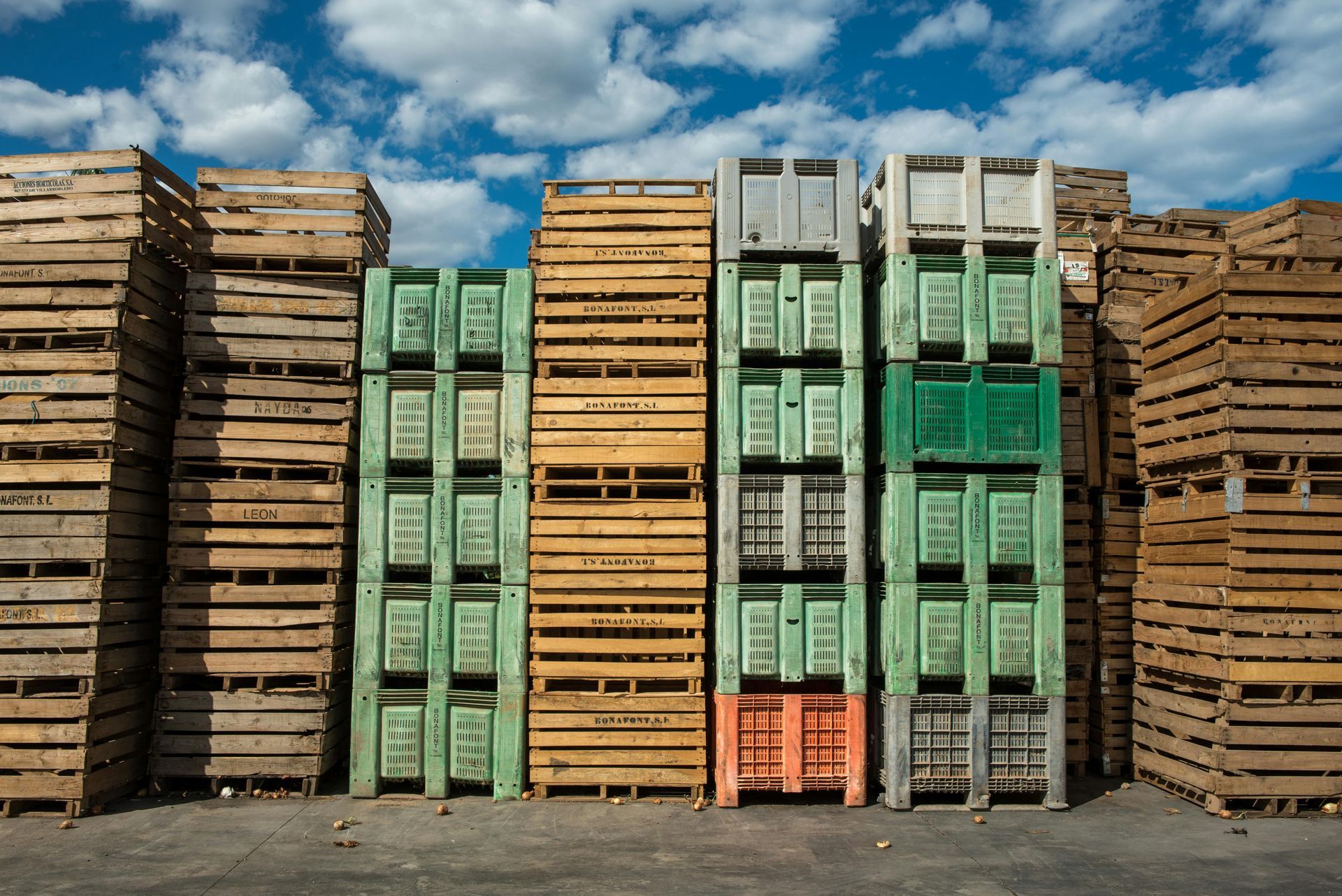
Addressing Common Concerns
Some companies are hesitant to use recycled pallets due to quality or performance concerns.
However, when sourced from a reliable provider, recycled pallets are tested for safety and durability and meet or exceed industry standards.
Many are certified for load capacity, hygiene, and handling.
Recycled pallets are also available in a wide range of sizes and grades, making them suitable for various industries, including food, beverage, pharmaceuticals, manufacturing, and retail.
Stay Green With Global ICB
Zero-waste logistics isn't just an environmental ideal — it's a practical, cost-effective strategy that companies can start implementing today.
Recycled pallets play a vital role in achieving this goal by extending the life of natural materials and reducing waste at multiple points in the supply chain.
At Global ICB, we're proud to offer full-service pallet recycling solutions that allow businesses to operate more sustainably without sacrificing efficiency or reliability.
Contact us today to learn more about our pickup services, refurbished pallet sales, and custom recycling programs.


